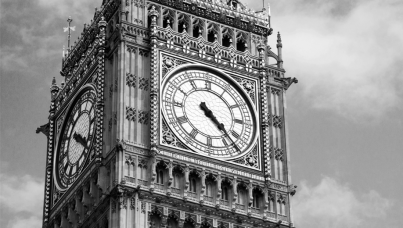Scotland Voting Intention: SNP in pole position in the run-up to the election
With two weeks to go until the general election, Ipsos’s Scottish Political Monitor poll run in partnership with STV News suggests the SNP is currently on course to win most votes, with the Conservatives in second place and Labour faring worse in third.
Headline voting intention figures are:
- SNP: 44%
- Scottish Conservatives: 26%
- Scottish Labour: 16%
- Scottish Liberal Democrats: 11%
- Scottish Greens: 2%
- Brexit Party: <1%
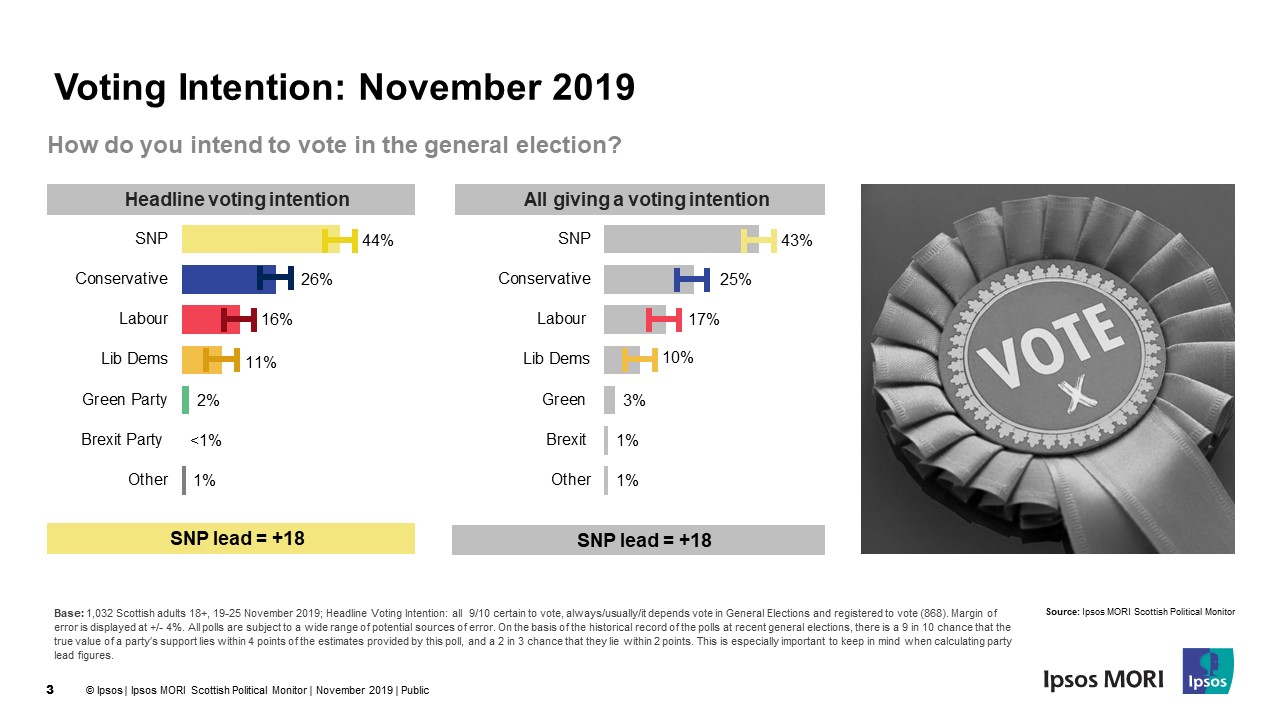
Voting decisions
- Three quarters (77%) of those with a voting intention say they’ve made up their mind on who they’ll vote for, while just under a quarter (23%) say they may change their mind.
- Those who say they’ll vote Conservative or SNP are surer of their vote than those voting Labour or Liberal Democrat. 84% of both SNP supporters and Conservative supporters say they’ve definitely decided, compared with 73% of Labour supporters and 66% of Liberal Democrat supporters.
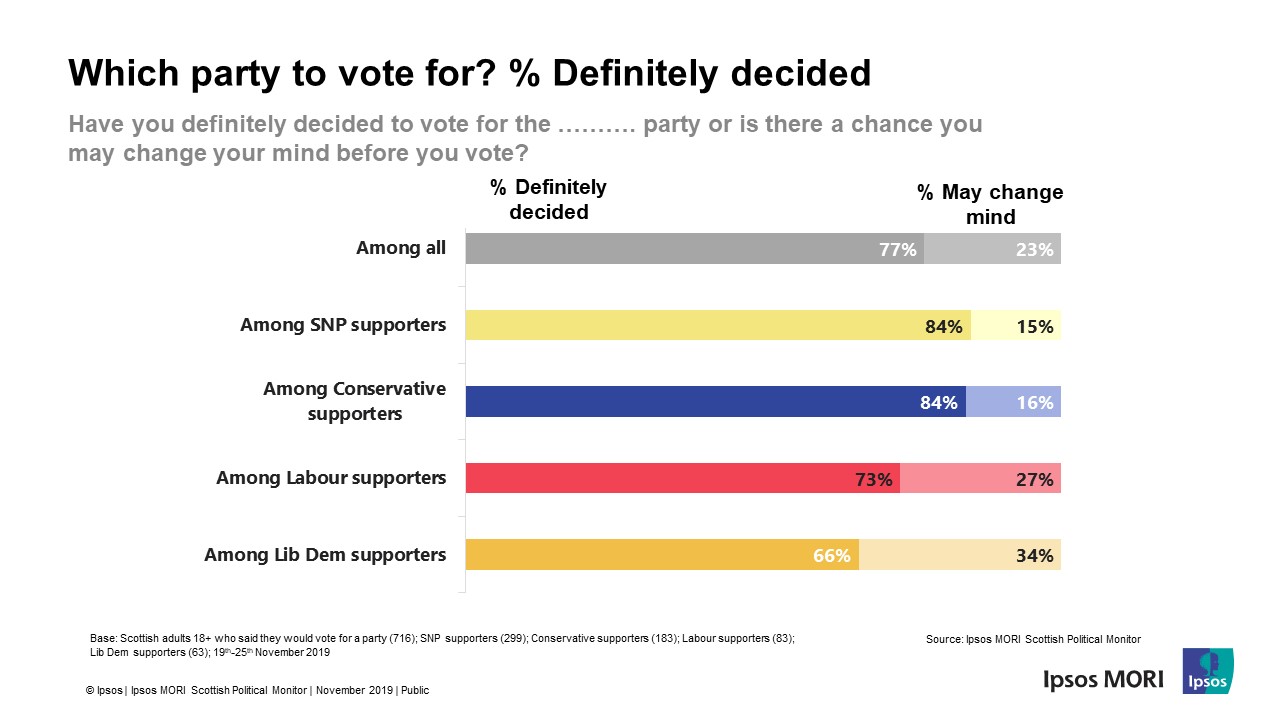
Key issues
- Brexit is seen as the top issue helping voters decide which party they’ll vote for, with 56% mentioning it (note these are spontaneous, top-of-mind responses, not prompted). Brexit is followed by the NHS (mentioned by 44%), Scottish independence/devolution (34%), education (24%), and protecting the environment/ climate change (8%).
- Brexit is particularly important to Conservative and Liberal Democrat supporters (72% and 79% respectively), while Labour supporters are more likely to pick the NHS (by 67% to 39% saying Brexit). While SNP supporters are the most likely to say Scottish independence is very important to how they’ll vote, Brexit remains the top issue for them nonetheless, with 55% mentioning Brexit, 46% Scottish independence and 45% the NHS.
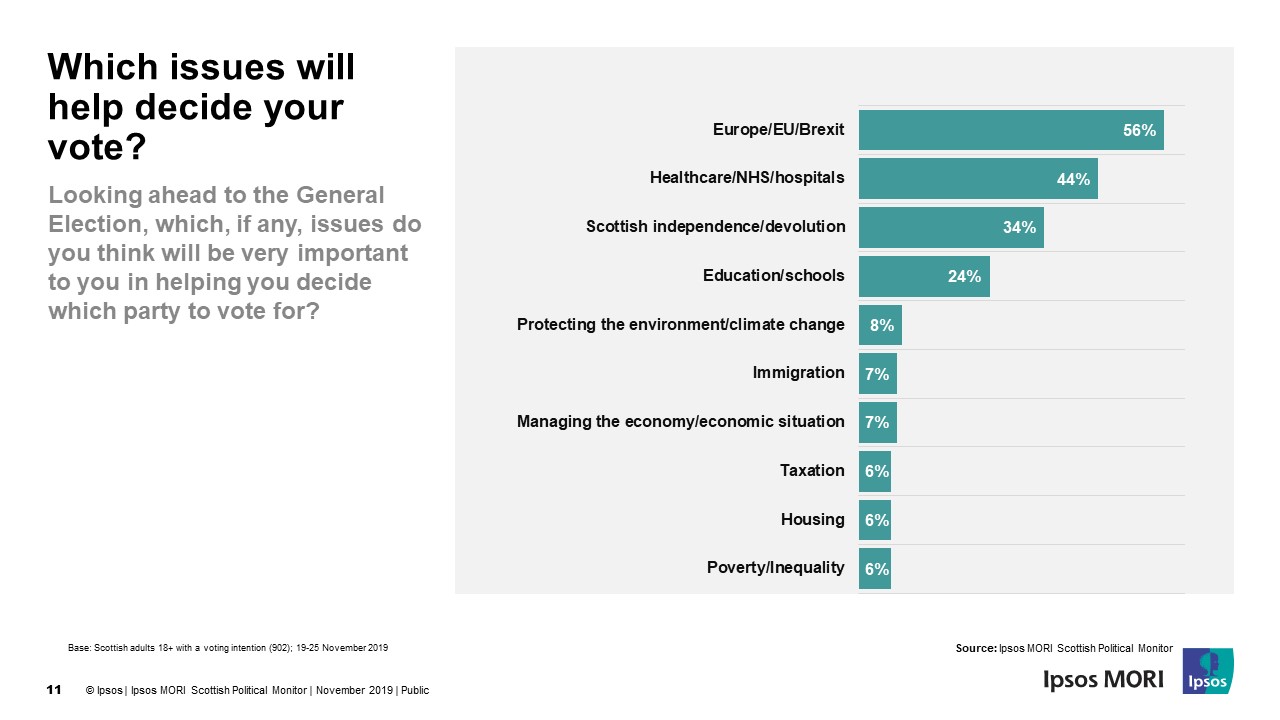
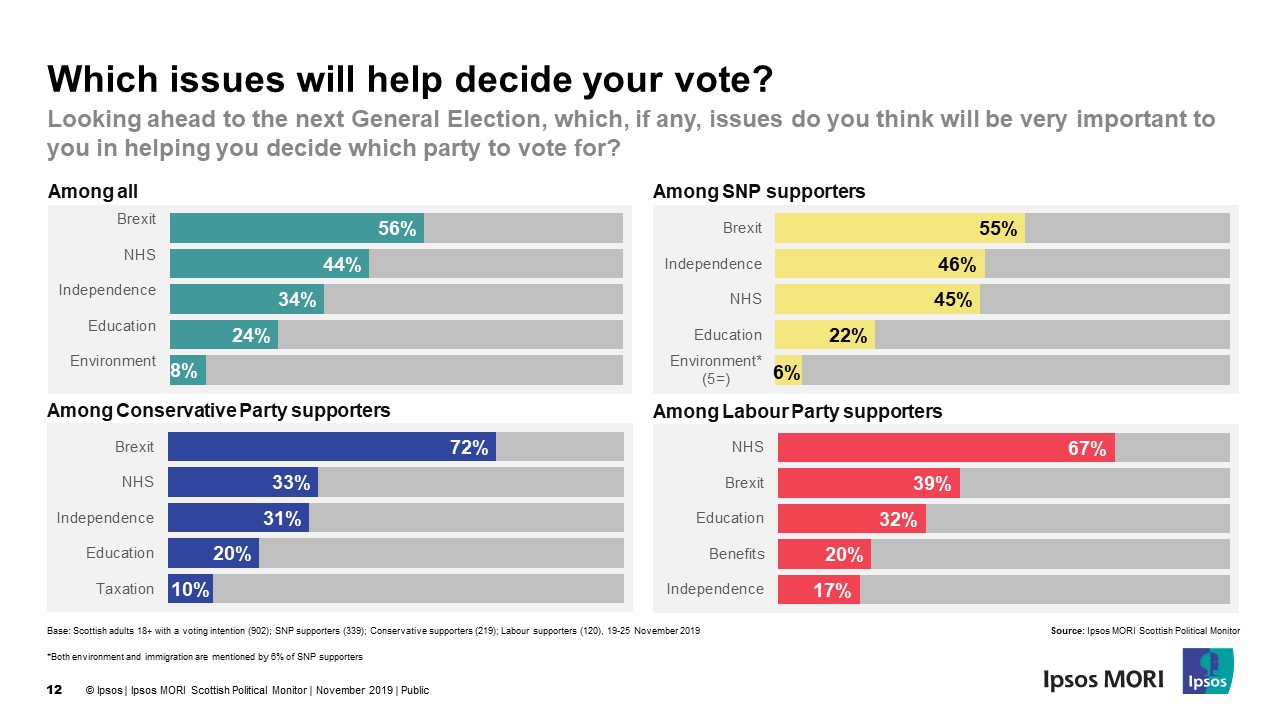
Satisfaction ratings
- Nicola Sturgeon is the only Scottish party leader not to receive a negative satisfaction rating. The public are split on how she’s doing her job as First Minister, with 48% saying they’re satisfied and 48% dissatisfied.
- Both Boris Johnson and Jeremy Corbyn are unpopular in Scotland. 22% of the public are satisfied with how Boris Johnson is doing his job as Prime Minister, while 74% are dissatisfied (including 23% of Conservative supporters) – a net satisfaction rating of -52. When it comes to Jeremy Corbyn, 22% are satisfied with how he’s doing his job as UK Labour Party leader, while 69% are dissatisfied (including 41% of Scottish Labour supporters) – a net satisfaction rating of -47.
- UK Liberal Democrat party leader Jo Swinson’s personal ratings are higher than either Johnson’s or Corbyn’s; 27% say they are satisfied with how she’s doing her job while 48% are dissatisfied, a net satisfaction rating of -21.
- Interim leader of the Scottish Conservatives Jackson Carlaw is the least well known of the Scottish party leaders. 18% are satisfied with how he’s doing his job and 43% are dissatisfied – a net satisfaction rating of -25.
- Scottish Labour leader Richard Leonard’s personal ratings are low, with 17% saying they’re satisfied with him and 50% dissatisfied – a net satisfaction rating of -33.
- Scottish Liberal Democrat leader Willie Rennie fares better than his Conservative and Labour counterparts, with 31% saying they’re satisfied with him and 38% dissatisfied - a net satisfaction rating of -7.
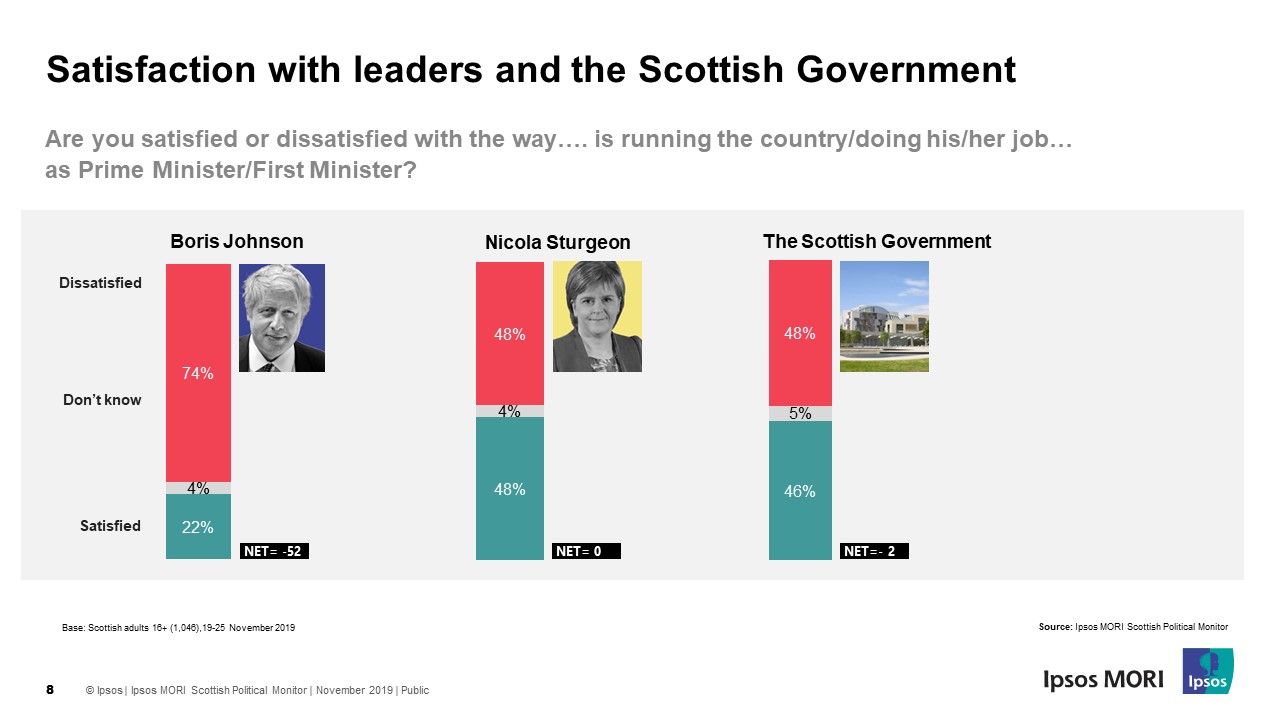
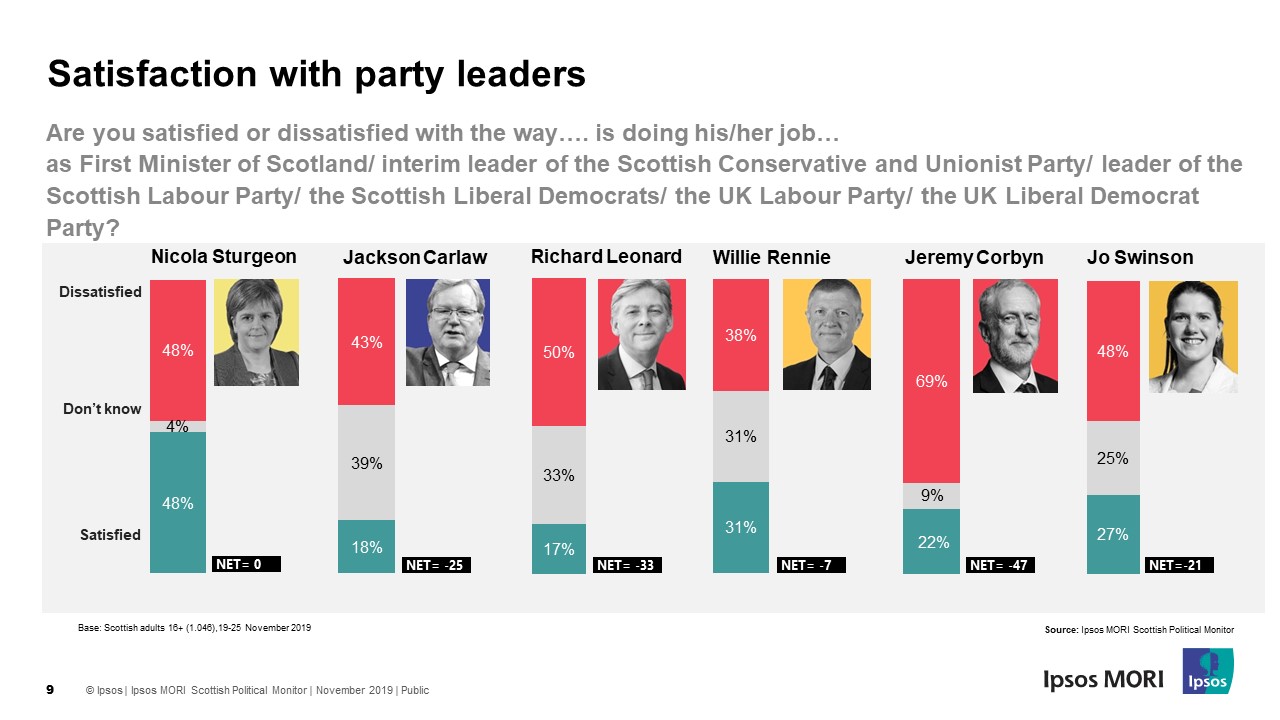
Views on a second independence referendum
- Among those who would be likely to vote in an independence referendum, 50% say they would vote Yes while 50% would vote No.
- Half of Scots (50%) oppose a second independence referendum being held in the next year, while 42% support it.
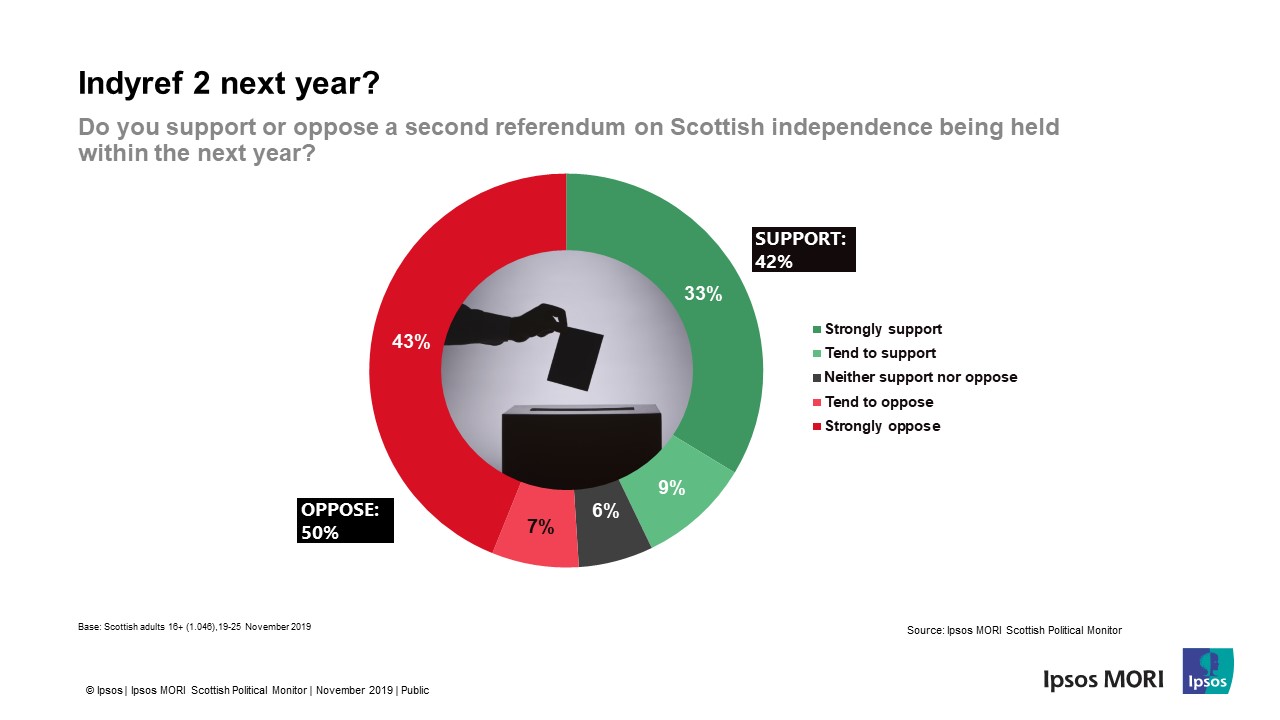
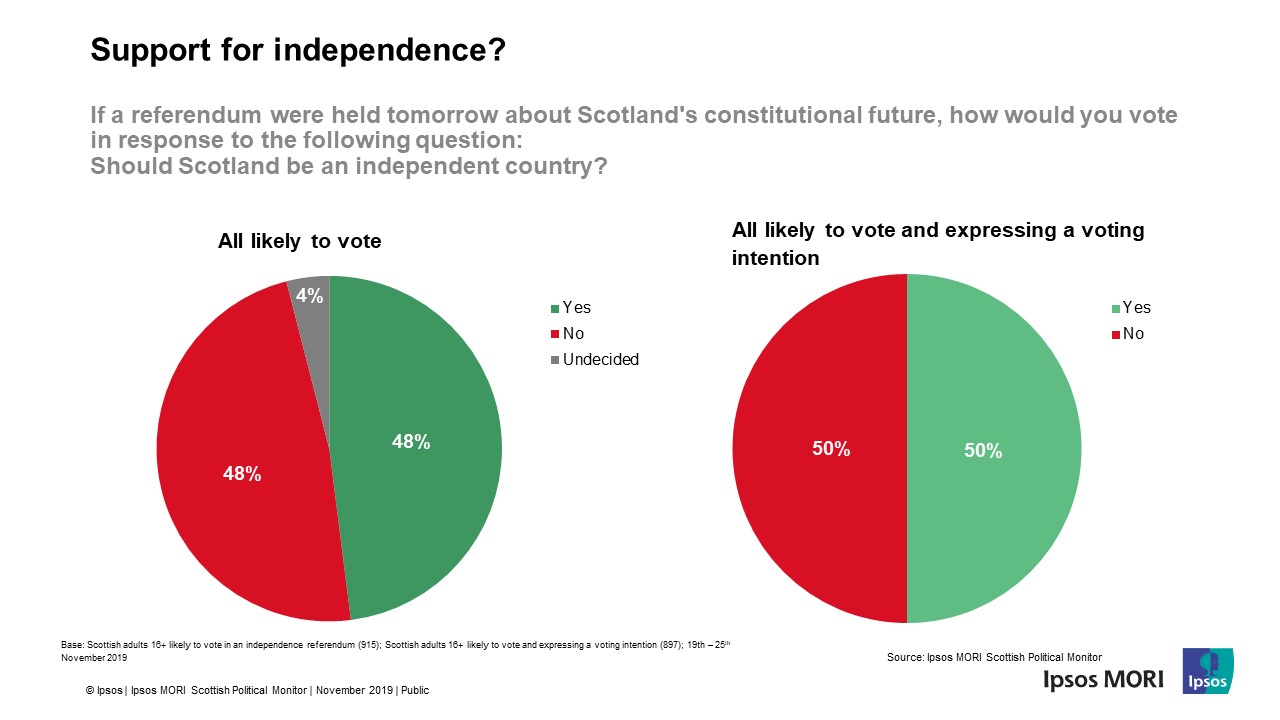
Emily Gray, Managing Director of Ipsos Scotland, said:
The SNP have most reason to be pleased with the findings from our poll. The party looks set to make gains at the general election and Nicola Sturgeon’s personal ratings remain the highest of any of the party leaders. Looking beyond the election, the timing of a second independence referendum remains a difficult balancing act for Nicola Sturgeon, since more of the Scottish public oppose a second referendum being held in the next year than support it.
While the Conservatives’ share of the vote looks likely to be a little lower than it was at the 2017 general election, the poll has major warning signs for Scottish Labour. Richard Leonard has the lowest satisfaction ratings of any of the Scottish leaders of the four largest parties, and most of the seats the party gained in 2017 look at risk of turning from red to yellow on December 12th.
Media queries
For media queries, please contact Emily Gray or Rachel Ormston on 0131 220 5699.
Technical note
- Ipsos interviewed a representative sample of 1,046 adults aged 16+ across Scotland.
- Interviews were conducted by telephone 19th – 25th November 2019.
- Data are weighted to the profile of the population.
- Where results do not sum to 100%, this may be due to computer rounding, multiple responses, or the exclusion of “don’t know” categories.
- All polls are subject to a wide range of potential sources of error. On the basis of the historical record of the polls at recent general elections, there is a 9 in 10 chance that the true value of a party’s support lies within 4 points of the estimates provided by this poll, and a 2 in 3 chance that they lie within 2 points.

